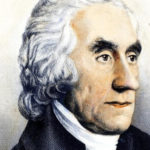This Biography is about one of the best Physicist Robert S. Mulliken including his Height, weight,Age & Other Detail…
| Biography Of Robert S. Mulliken | |
| Real Name | Robert S. Mulliken |
| Profession | Chemists, Physicists |
| Nick Name | Robert Sanderson Mulliken |
| Famous as | Chemist, Physicist |
| Nationality | American |
| Personal Life of Robert S. Mulliken | |
| Born on | 07 June 1896 |
| Birthday | 7th June |
| Died At Age | 90 |
| Sun Sign | Gemini |
| Born in | Newburyport, Massachusetts, US |
| Died on | 31 October 1986 |
| Place of death | Arlington, Virginia, US |
| Family Background of Robert S. Mulliken | |
| Father | Samuel Parsons Mulliken |
| Mother | Katherine W. Mulliken |
| Spouse/Partner | Mary Helen Von Noe |
| Education | MIT, University of Chicago |
| Awards | Peter Debye Award (1963) Nobel Prize for chemistry (1966) ForMemRS (1967) Priestley Medal (1983) |
| Personal Fact of Robert S. Mulliken | |
|
Robert Sanderson Mulliken was an American physicist and chemist who received the Nobel Prize for Chemistry in 1966 for his work on the structure of molecules. Starting to work on the theory of molecular structures from 1920, Mulliken devoted his entire life to electron and quantum theory and was primarily responsible for the development of Molecular Orbital Theory, a method of computing the structure of molecules. He was affectionately called as Mr. Molecule. Mulliken along with Linus Pauling is credited to be the founder of Theoretical Quantum Chemistry. He was instrumental in developing the basic concepts of molecular structure and thereby bringing forth its terminology and spectra. His area of work covered two major scientific disciplines and that was the reason he alternated between physics and chemistry. Thus he has carved the niche for also bringing in the contributions of mathematics and computers into his study. His field of expertise was so complex that when Mulliken received the Nobel Prize, he did not even attempt to explain his work in layman terms to the audience. He has also contributed to develop the atomic bomb during the World War II. |
|



